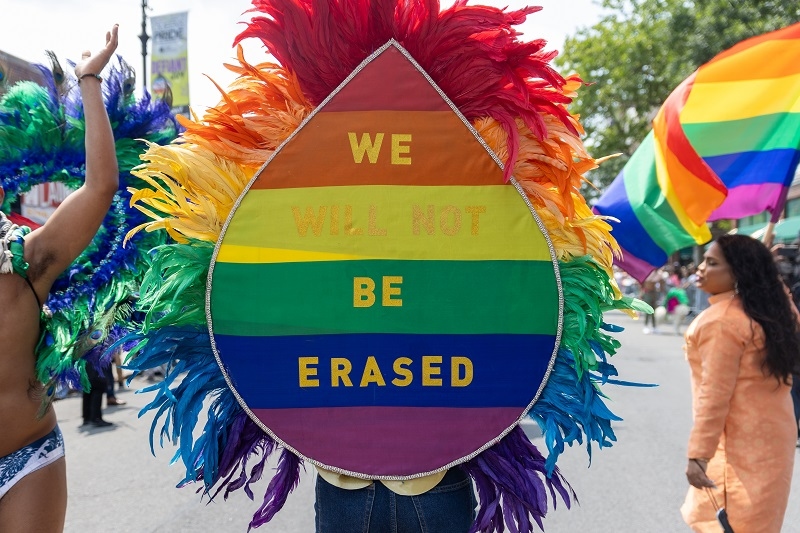Paving The Way For Non-Binary & Transgender Equality

The transgender and non-binary community is growing and gaining more visibility every day. But it still faces many challenges in terms of acceptance and equality. In this blog post, we'll explore the importance of visibility and acceptance when it comes to non-binary and transgender rights. We'll also look at how we can work together to create a more inclusive society for everyone.
What is Visibility and Acceptance?
Visibility and acceptance are two key concepts that are important for non-binary and transgender people. Visibility is the recognition and representation of non-binary and transgender people in the media and society. It is also about creating a safe space for non-binary and transgender youth & people to be themselves without fear of discrimination or violence.
Acceptance is about understanding and embracing the existence of non-binary and transgender people in society. It is about creating an environment where non-binary and transgender people can feel safe and secure, and be respected for who they are. Acceptance also involves understanding the unique experiences and challenges of non-binary and transgender people, and working to address them.
Why is Visibility and Acceptance Important?
Visibility and acceptance are essential for non-binary and transgender people to be able to access the same opportunities and rights as their cisgender peers. When non-binary and transgender people are visible and accepted, they are more likely to be seen as equal members of society and have access to the same rights and resources.
Visibility and acceptance are also important for creating a sense of belonging for non-binary and transgender people. When non-binary and transgender people are visible and accepted, they feel more comfortable in their own skin and feel more connected to their communities and society at large.
Challenges Facing the Transgender and Non-Binary Community
Unfortunately, non-binary and transgender people still face a range of challenges in terms of visibility and acceptance. While there has been progress in recent years, non-binary and transgender people still face discrimination, violence, and a lack of access to resources and opportunities.
Non-binary and transgender people are often excluded from media representation and public discourse. They are also more likely to experience bullying and harassment, and are often subjected to transphobia and other forms of discrimination. These challenges can make it difficult for non-binary and transgender people to feel safe and accepted in their communities.

Creating a More Inclusive Society
To create a more inclusive society for non-binary and transgender people, we must work together to increase visibility and acceptance. We can do this by advocating for more non-binary and transgender representation in the media and public discourse, and by challenging discrimination and transphobia.
We can also create more inclusive spaces in our communities by educating ourselves and others on the unique experiences of non-binary and transgender people. We can also work to create safe spaces for non-binary and transgender people, and ensure that they have access to the same transgender resources and opportunities as their cisgender peers.
Supporting Non-Binary and Transgender Youth
It is also important to support non-binary and transgender youth. Young people are often the most vulnerable members of the non-binary and transgender community, and they need our support to ensure that they feel safe and accepted in their communities. We can do this by providing access to resources and mentorship opportunities, and by creating a safe space for them to express themselves.
Resources for Non-Binary and Transgender People
There are a range of resources available for non-binary and transgender people, including support groups, online forums, and educational materials. These resources can provide support and guidance for non-binary and transgender people, and can help them to feel more connected and accepted in their communities.
The Role of Allies
Allies can also play an important role in creating a more inclusive society for non-binary and transgender people. Allies can provide support and guidance, and can help to challenge discrimination and transphobia. They can also be a source of comfort and understanding for non-binary and transgender people. These include transgender celebrities.
Conclusion
The power of visibility and acceptance cannot be overstated. When non-binary and transgender people are visible and accepted, they are more likely to feel safe and secure, and to have access to the same rights and resources as their cisgender peers. Visibility and acceptance are essential for creating a more inclusive society for everyone.

























